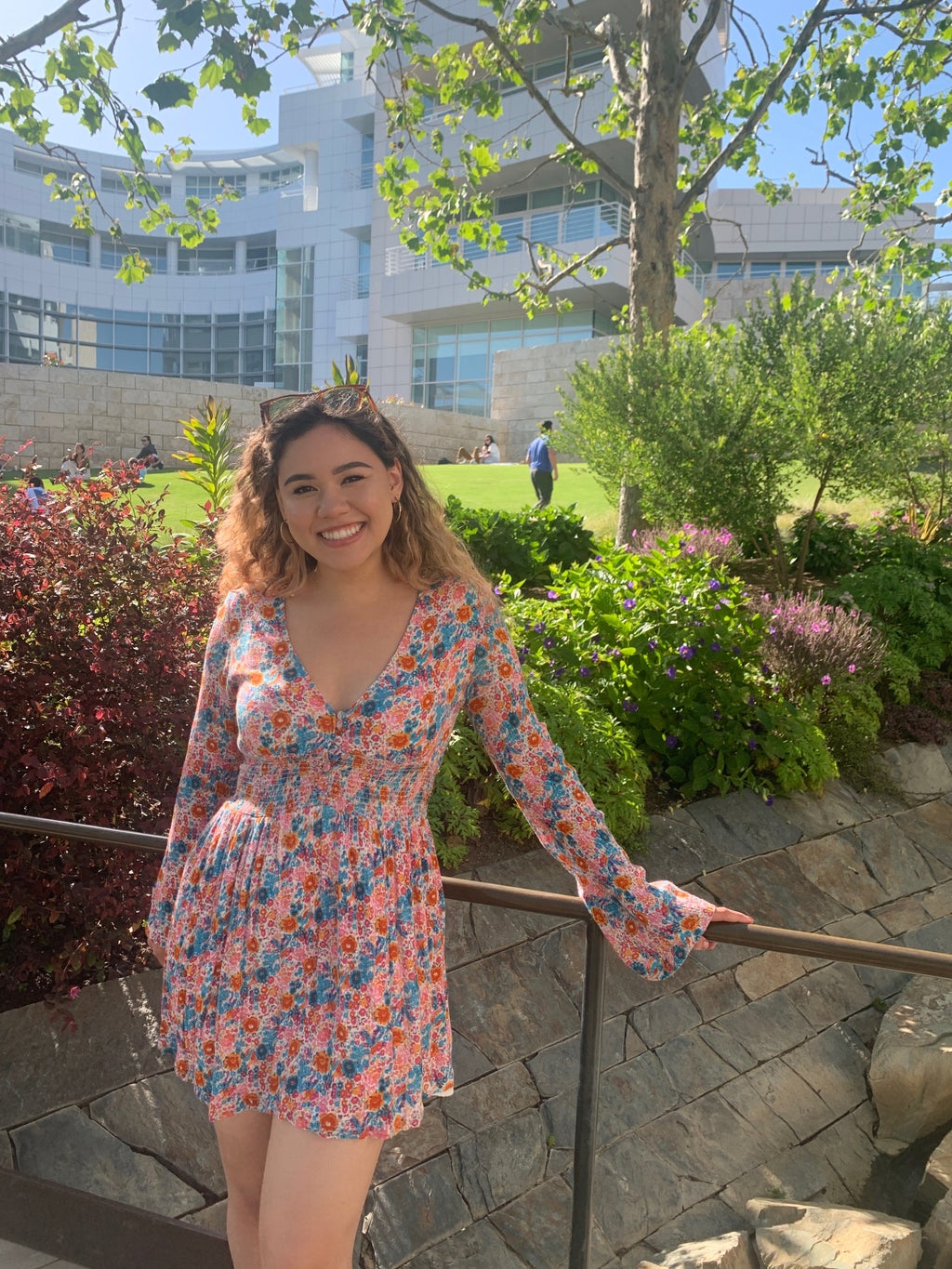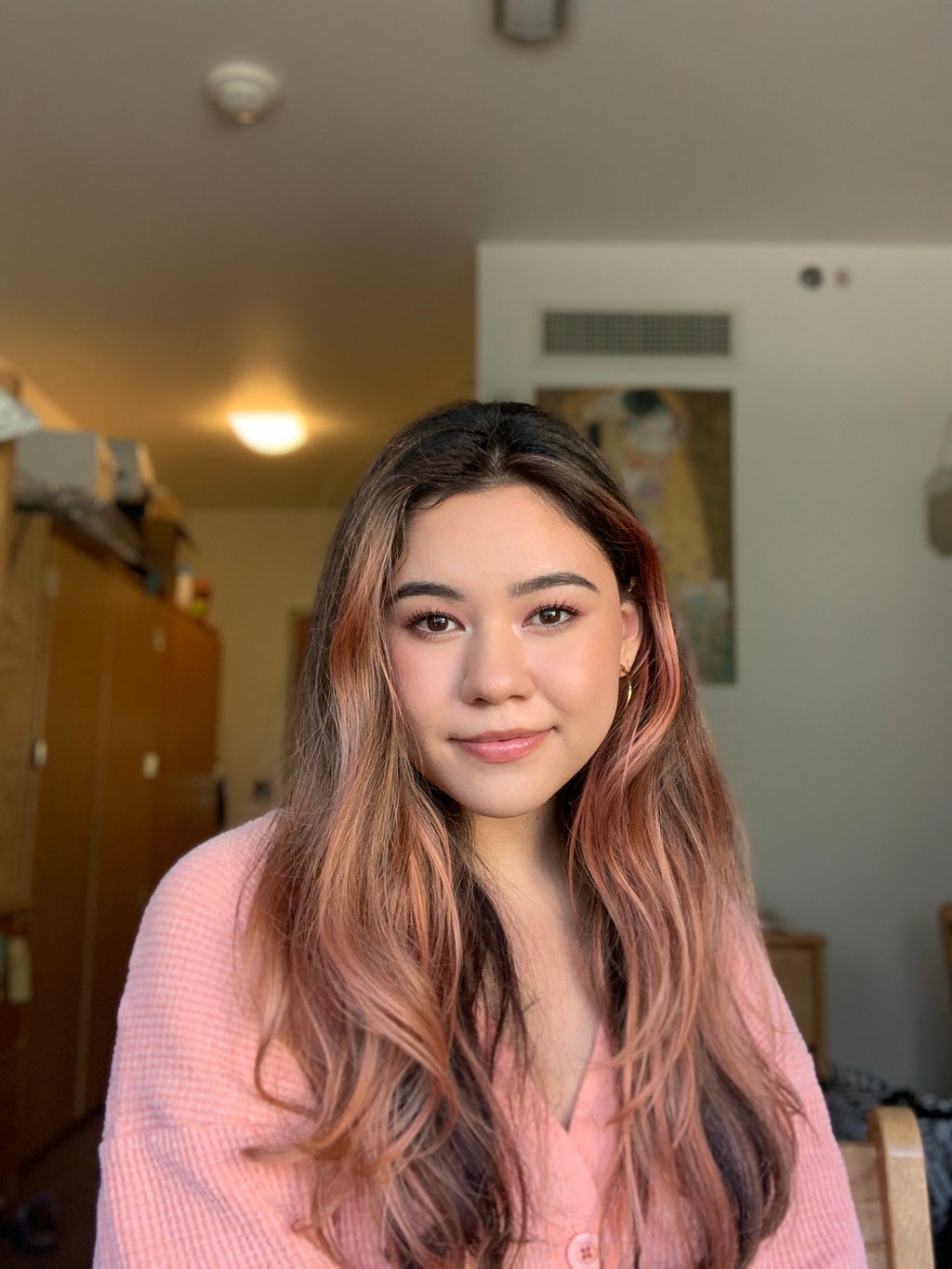I was in college the first time anyone called me Wasian. I remember blinking at them in shock and feeling an immediate dislike for how the portmanteau rolled off their tongue. My English major brain started whirring, as I overanalyzed how the word splits two identities and Frankensteins them together into a new, clumsy descriptor.
I’ve since seen and heard Wasian popping up more and more in my life. I originally thought it must just be a SoCal term that I didn’t grow up with in San Francisco, but I’ve recently noticed the word flooding social media platforms. TikTok, specifically, has been home to the viral #wasiancheck trend. Sometimes these videos consist of users who are half AAPI and half white filming themselves and their parents. However, often times the videos are clips of Wasians taking off their sunglasses and revealing how “Asian” they look. This latter group of TikToks added to my initial aversion to the Wasian term, deepening my sense that it’s used to poke fun at being a mash-up of white and Asian features.
More importantly than leading me down a TikTok rabbit hole, exploring my feelings towards the Wasian label has forced me to question: What term do I identify with as a half AAPI, half white individual?
“Hapa” has always been the main word that I self-identify with. Since I was a baby, hapa is how my parents have implicitly taught me to see myself. It’s the only word extended family and family friends have ever called my sister and me. As a result, when I think of hapa, I think of the times when my mom has reassured me that I’m beautiful, of moments blending family traditions at holidays and instances of making childhood friends who actually looked like me. Hapa feels safe, warm and authentic.

But the story doesn’t end there. Many would (successfully) argue that the word “hapa” is exponentially more problematic than “Wasian.” Depending on who you ask, hapa can be a derogatory slur with roots meaning half. So, similar to “mixed-race,” it can carry connotations of racial purity politics. Others would say that it is cultural appropriation and may only properly refer to people who are half Hawaiian. A chorus of voices from the West Coast Japanese American community would rebut both these accusations, saying, “We’ve reclaimed the past usages, and ‘hapa’ is mostly used to refer to biracial Japanese and white folks now. If that’s how it’s commonly used, that’s what it means!”.
To put a very long, very complex story short: Hapa might feel like my home, but it’s a home full of trapdoors. So where does that leave me? Should I answer to the cringey “Wasian?” Should I dub myself a problematic “hapa?” Should I settle for a more generic, jargon-y term like “multiracial?”

The truth is, I’m not entirely sure yet. As anyone with a complicated ethnicity can tell you, self-identification is a nebulous whirlwind of a process. The more the term Wasian spreads throughout Gen-Z slang, the more I’ll acclimate to owning the label. And, at the same time, I’ll probably always call myself hapa when speaking from the heart. I’m learning to accept that these relationships with my identifiers can simultaneously exist. Maybe one day, while walking around campus, I’ll learn a new term that resonates with who I am. Until then, I’m ok with the fact that no one word neatly sums up the complexities and histories of the half-AAPI lived experience.



